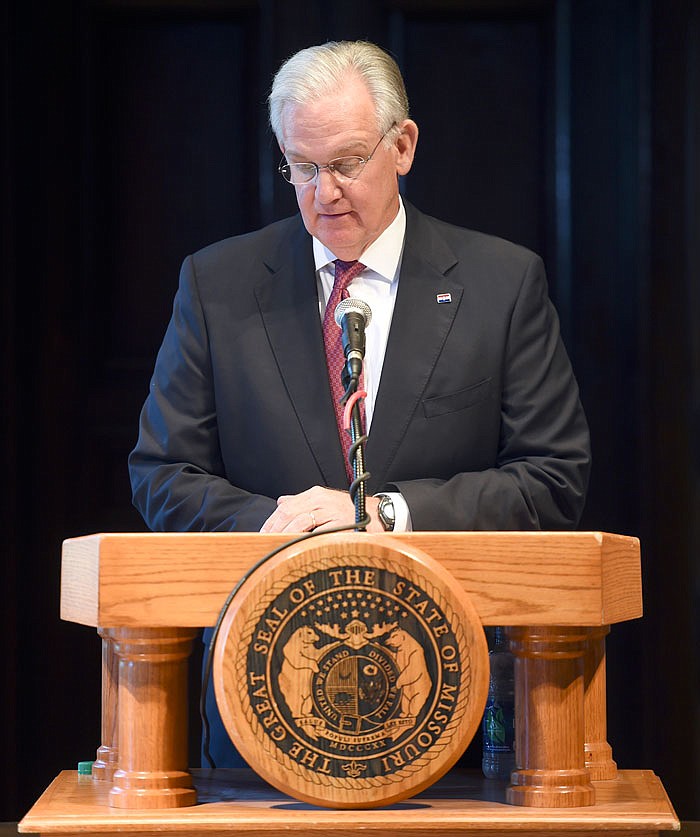In his eight legislative sessions as Missouri governor, Jay Nixon, a Democrat, has vetoed 148 non-budget bills passed by the General Assembly - the most of any governor in modern history.
The Legislature's Republican leaders often call Nixon the state's "most overridden" governor because they have ordered 48 bills into law over Nixon's vetoes.
However, that means just over two-thirds of the governor's vetoes were sustained by at least one of the Legislature's two chambers.
Nixon told reporters last week he thinks that's a good record.
"You all know me pretty well," the governor said. "If I think something's good for the state, I sign it.
"If it's not, I don't - it's not a scorecard. It's a substance card."
Nixon also said "it's a pretty long, strong list" of proposals that, if lawmakers had overridden his vetoes, would have made the state a more difficult place to be, particularly with what he said was their more than $1.5 billion price tag on state budgets.
"The reason I've been successful, in my view, is that I've used (the veto) at times when I felt I was correct," Nixon said. "I didn't use it as a ploy."
After last week's veto session ended, Senate President Pro Tem Ron Richard, R-Joplin, told reporters Nixon might have had better success with the Legislature if he and especially his staff had been more involved in writing legislation.
"According to conversations that I have had with bill sponsors," Richard told reporters, "there hasn't been a real good dialog with the (governor about the) legislation as it has been finished up."
He added: "I'm saying that his people aren't engaged - particularly his department heads - with my chairmen, as much as they should be.
"I'm not going to blame it all on the governor (because) we don't expect the governor to talk to everybody all the time. But some of his people are less than helpful in drafting legislation."
Senate Majority Leader Mike Kehoe, R-Jefferson City, agreed there might not have been as many veto overrides if the governor and his office had "weigh(ed) in on the process earlier on these bills but his style has not been that way."
But, Nixon countered the next day, "I don't spend a lot of time - nor does my administration - crafting bills that we disagree with."
He added, he visits with lawmakers a lot and will continue to do so during his last weeks in office.
But he doubts his being more active trying to "massage" the language of bills he disagreed with would have changed the outcome.
The Legislature's total veto overrides for the last eight years includes last year's House Bill 150 - which limited the number of weeks of unemployment eligibility and tied the available number of weeks to economic conditions.
But the Missouri Supreme Court overturned that law this year because the House overrode the governor's veto during last year's regular session, while the Senate waited until the veto session.
The high court ruled that to override the veto successfully, the Senate also should have voted during the regular session.
That vote didn't happen because the Senate Democrats tied up all Senate action except for one vote, after the Republicans locked the debate on a right-to-work bill so it couldn't be amended, then used the previous question to force a vote on the controversial bill.

